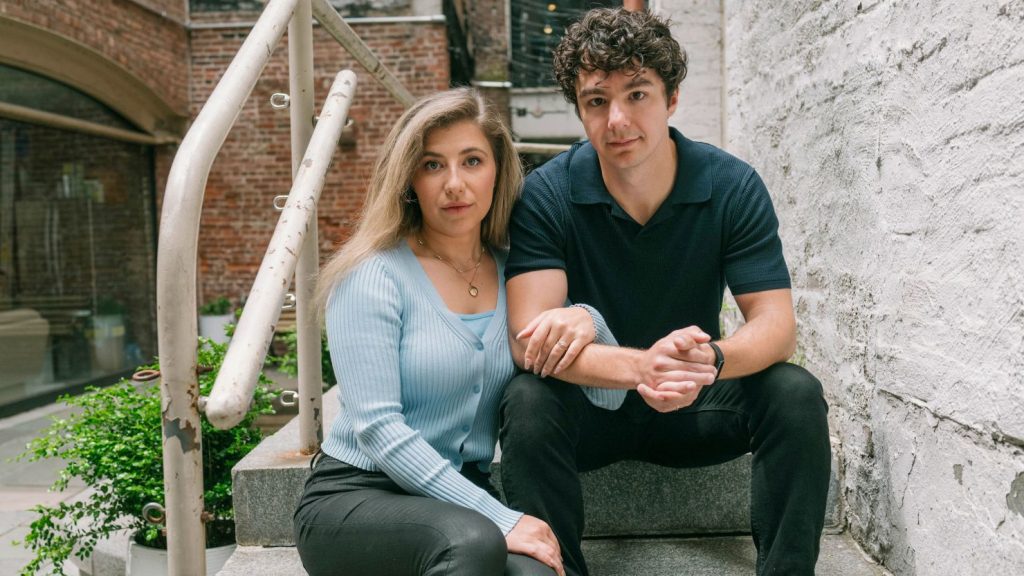When AI Crosses the Line: The Case of Stolen Voices
3 min read
They claim AI stole their voices. Now they’re suing

They claim AI stole their voices. Now they’re suing
The fear that artificial intelligence might one day threaten our jobs is becoming a reality for many. For Paul Skye Lehrman, however, this anxiety took an unnervingly personal turn when he heard his own voice being used to discuss the very issue of AI’s impact on employment.
In June 2023, Paul and his partner, Linnea Sage, were driving near their New York City home. They were listening to a podcast about the Hollywood strikes and the implications of AI on the industry. As voice-over artists, the couple is deeply concerned about the possibility of AI technology replacing human voices. The podcast episode had a distinctive twist—it featured an AI chatbot using text-to-speech software to discuss how AI might reshape the job market.
To their shock, the AI’s voice sounded remarkably like Paul’s. “We had to pull over,” he recounted. “The irony of hearing my own voice discussing AI’s potential impact on our industry was overwhelming.”
That night, they spent hours online, searching for answers. Their investigation led them to the text-to-speech platform Lovo, where they discovered not only Paul’s voice but also Linnea’s. “I was stunned,” Linnea said. “It was clear that a tech company had stolen our voices, created AI clones, and possibly sold them thousands of times.”
The couple has since filed a lawsuit against Lovo, but the company has not yet responded to the legal action.
The core of their complaint revolves around how Lovo managed to clone their voices. According to Lovo co-founder Tom Lee, creating a voice clone requires a user to read about 50 sentences. “We capture the tone, character, style, and even accents,” Lee explained in a 2021 podcast interview.
Paul and Linnea claim that Lovo acquired their voice recordings under false pretenses. They allege that Lovo employees contacted them via Fiverr, a freelance platform where they offered voice-over services. In 2019, Linnea received a request to record several generic radio scripts. The client, claiming it was for research purposes, paid her $400.
About six months later, Paul received a similar request. The anonymous Fiverr user assured him that the recordings would be used only for “academic research.” Paul was paid $1200 for his work. The couple later connected these requests to Lovo after discovering their voices on the platform.
Lovo responded to their claims by stating that the recordings were obtained legally through the Fiverr transactions. They pointed to the correspondence between the couple and the anonymous Fiverr user as evidence that the couple had consented to the use of their voices.
The lawsuit, filed in May, alleges that Lovo used the couple’s recordings to create clones that directly compete with Paul and Linnea’s own voices. They argue this was done without their consent and without proper compensation. Their case is a class action, hoping to include other affected individuals, though no additional claimants have joined so far.
Professor Kristelia Garcia, an intellectual property law expert at Georgetown University, suggests the case will likely focus on the “right of publicity” in US law. This law protects against unauthorized use of a person’s voice or likeness. Garcia also notes potential breaches of contract regarding the licenses granted for the recordings. “Licenses are for very specific uses,” she explained. “You don’t give someone a license to use your pool for a party every day.”
Regardless of the case’s outcome, it reflects a growing trend of legal disputes among artists and creators striving to maintain control over their work. This case is part of a broader wave of concerns about AI’s encroachment into creative fields. Recently, financial firm Klarna announced plans to use AI to significantly reduce its workforce, highlighting the broader impact AI may have on various professions.
For Paul and Linnea, this issue is no longer a distant concern. “This whole experience feels surreal,” Linnea said. “We envisioned AI as something that would handle mundane tasks, not something that would directly challenge our creative livelihoods.”